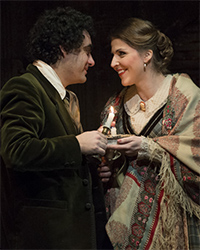
In a recent e-mail to my Dad, I told him about an event that had seemed ‘very fortuitous’ to me (because of my understanding of the word to mean a mixture of coincidence and good fortune). He was surprised that I would have qualified such an adjective, which to his mind can’t be found in different grades or extremes: in the same way that something is either unique or it isn’t, he would argue that an event or happening either is or isn’t fortuitous.
Over to my Dad, Brian Barder, for his research and comments on the matter. It’s fortunate for me – and, I admit, in this case fortuitous – that I have an American passport: he’s let me off the hook because of it …
~~~~~~~~~~~~~~~~
It’s interesting that you reckon that “fortuitous has extra connotations of luck or good fortune (unlike accidental or coincidental) – and there are definitely different extremes of good luck and fortune”, which is not confirmed by the big OED Online:
fortuitous That happens or is produced by fortune or chance; accidental, casual. fortuitous concourse of atoms: see concourse n. 3a. fortuitous event (Law): see quot. 1856.
1653 H. More Antidote Atheism (1712) iii. xv. 135 This Argument against the fortuitous concourse of Atoms.
1712 J. Addison Spectator No. 293. ¶4 The highest Degree of it [sc. Wisdom] which Man can possess, is by no means equal to fortuitous Events.
1806 R. Fellowes tr. Milton Second Def. in Wks. (Bohn) I. 240 This extraordinary kindness..cannot be any fortuitous combination.
1823 Scott Peveril I. Pref. Let. p. iii, A fortuitous rencontre.
1856 J. Bouvier Law Dict. U.S.A., Fortuitous event, a term in the civil law to denote that which happens by a cause which cannot be resisted..Or it is that which neither of the parties has occasioned or could prevent.
1865 Pall Mall Gaz. 27 Oct. 6 The epithet he [Lord Palmerston] applied to the coalition of parties against him on the China question in 1857—‘a fortuitous concourse of atoms’.
1877 W. Sparrow Serm. xviii. 241 Neither fortuitous nor necessitated, but entirely under the governmental control of the great and good God.
absol.
1855 H. Spencer Princ. Psychol. iv. iii. 530 All physical relations whatever, from the absolutely indissoluble to the fortuitous.
(“Fortune” in that definition obviously means chance, neither good nor bad fortune and certainly not luck as in ‘lucky’.)
Do you have a copy of Bob Burchfield’s 3rd edition of Fowler’s Modern English Usage, which has an excellent essay on ‘fortuitous’? As I thought, the idea that fortuitous has some connection with fortunate is an error that began to creep in towards the beginning of the C20 because of the coincidental (fortuitous!) resemblance between the two words, although they have completely different origins — fors (chance) in the case of fortuitous, fortunus (luck, fortune) for the other. The first edition of Fowler described the use of fortuitous to imply fortunate as a straightforward malapropism. Burchfield reluctantly admits that the error is now becoming so common that it’s probably in the process of becoming acceptable. His entry concludes:
Plainly the new meaning is knocking at the door. But readers of this book are urged meanwhile to restrict the word to its traditional (“accidental, by chance”) sense. When an intrusive meaning contains a seed of ambiguity, it is advisable to stay with the older ones.
I’m chuffed to see that Burchfield’s piece starts by quoting a letter of 1987 to him from a friend: “How sad it will be to lose ‘fortuitous’ to the Visigoths.” The friend who wrote that to him was me. I’m still sad to see a good and useful word lost! I hardly ever use it nowadays for fear that I will be thought not to know that in its original and most respectable usage there’s not a hint of good luck or fortune, and that that misapprehension arises purely from a kind of homophonic pun.
The Oxford Dictionary for Writers and Editors says briskly: “due to or charaterized [sic] by chance: not fortunate or well-timed.” The Times Style Guide says “fortuitous does not mean fortunate. It means by chance or accident. Do not confuse.” The Economist Style Guide says “FORTUITOUS means accidental, not fortunate or well-timed.”
However, I see with some gloom that Webster’s College Dictionary, 9th edition, a dictionary of American English of course, does give “fortunate, lucky” as a second definition of fortuitous. Most of the (American) online dictionaries follow Webster. But there’s also this rather good summary:
The traditional, etymological meaning of fortuitous is ‘happening by chance’: a fortuitous meeting is a chance meeting, which might turn out to be either a good thing or a bad thing. Today, however, fortuitous tends to be often used to refer only to fortunate outcomes and the word has become more or less a synonym for ‘lucky’ or ‘fortunate’ ( the ball went into the goal by a fortuitous ricochet). Although this usage is now widespread, it is still regarded by some people as incorrect.
http://oxforddictionaries.com/definition/english/fortuitous
It seems that the word has already been lost, not to the Visigoths as I wrote to Bob Burchfield, but to the Americans. So I suppose you’re off the hook.
 I live on that street.
I live on that street.![]() I quite like it.
I quite like it. I’m eating meatballs for dinner.
I’m eating meatballs for dinner.![]() I don’t care.
I don’t care. I’m getting the lay of the land.
I’m getting the lay of the land. I’m meeting with my husband tomorrow.
I’m meeting with my husband tomorrow. I borrowed my teacher’s eraser.
I borrowed my teacher’s eraser. I’m taking my fanny-pack when I go on vacation.
I’m taking my fanny-pack when I go on vacation. He has his dog on a leash.
He has his dog on a leash. He went to public school.
He went to public school. The dog is definitely in heat.
The dog is definitely in heat. I’d like to talk with him.
I’d like to talk with him.












